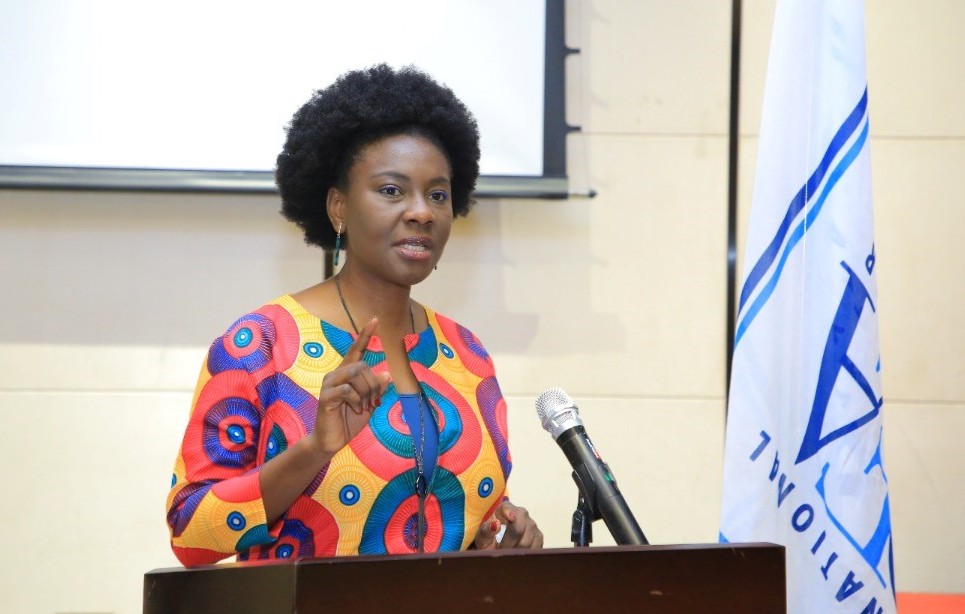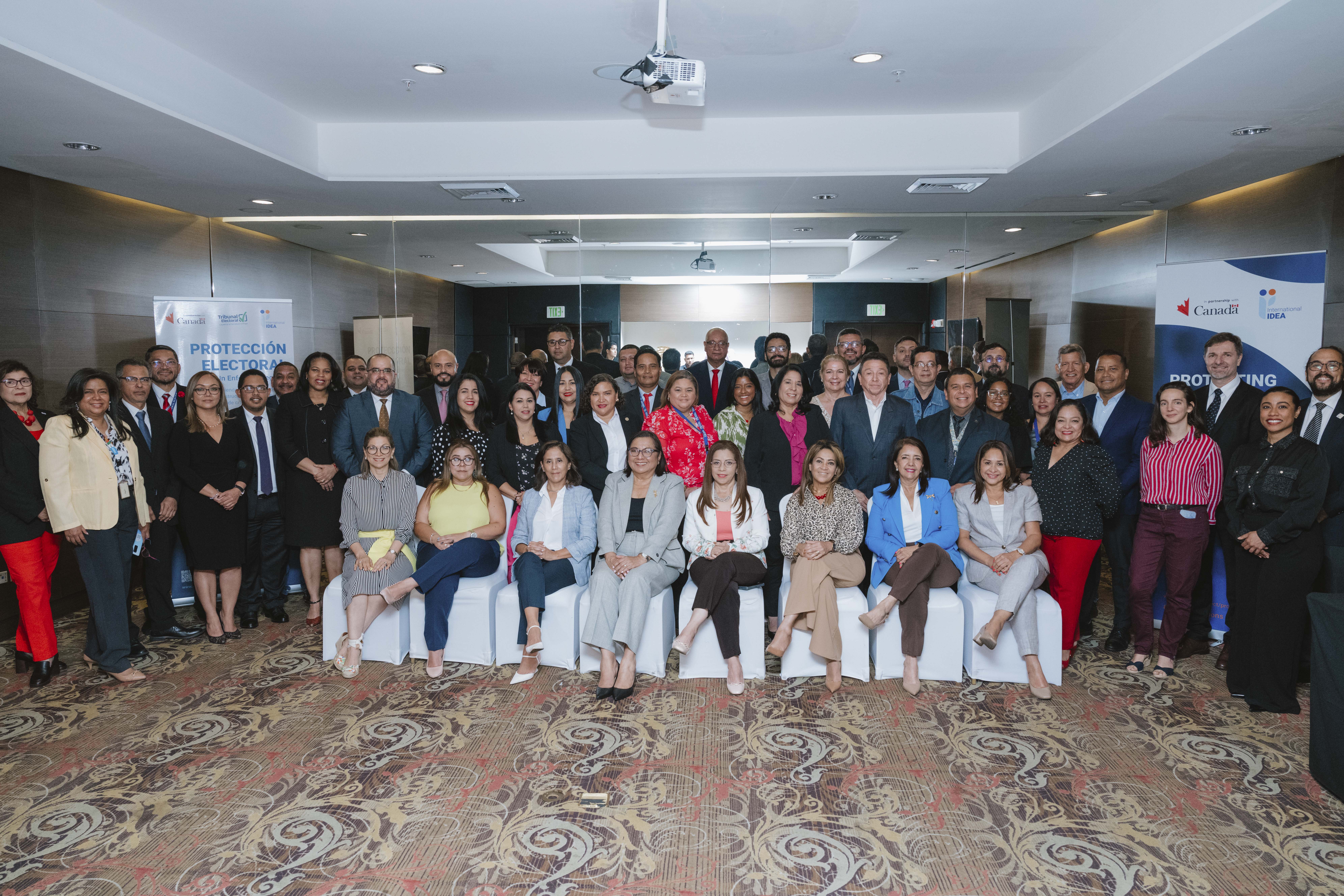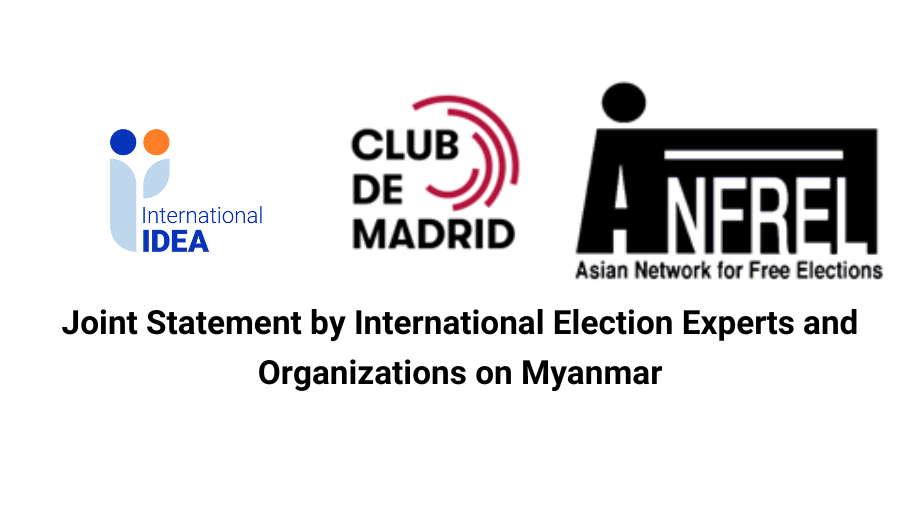Q&A: Olufunto Akinduro on Nigeria's 2023 Elections—and Democracy as the Future

On 25 February, Nigerians will go to the polls to elect the members of the National Assembly (House of Representatives and Senate), and a new president. Two weeks later, they will vote again, for members of the state Houses of Assembly, and in 26 of the states for governors. These will be the seventh elections since the end of military rule in Nigeria in 1999. The presidential election is notable this year because the current president, Muhammadu Buhari, has completed the second of two constitutionally permitted terms, and will leave office to make way for the winner of the election.
Nigeria’s important economic and political role in West Africa, and indeed across the continent, gives this election relevance to larger trends in democracy in Africa and globally. The absence of an incumbent on the ballot makes the election both less predictable, and potentially more important in reinforcing positive examples of constitutional transfers of power in the region. The political context differs considerably from the last national elections in 2019, but while some old problems have been addressed, others persist alongside new challenges. Chief among these are continuing challenges relating to infrastructure and security, and more recent challenges like the transition to a new design for the national currency.
To better understand what is happening in Nigeria, I spoke with Olufunto Akinduro, Senior Programme Officer in the Africa and West Asia Regional Programme (based in Addis Ababa, Ethiopia), and thematic lead on Electoral Processes in the Africa and West Asia region.
How critical is this election for Nigeria's democratic development?
It's quite important, because these will be the seventh consecutive elections in the Fourth Republic. That's the longest Nigeria has been a democracy as a nation. So, if Nigeria can scale this, it will give us hope that democracy can indeed be the future for Nigeria. It would also be the second test of whether Nigeria can have a change of government in a peaceful atmosphere. It happened in 2015; it was relatively peaceful, and the results were widely accepted. Are we going to see the same thing in 2023? And even if we do not have a change of government, if we retain the same party, is it going to be a peaceful transition? Because this is now the second test of an actual transition where an incumbent’s tenure is over and he has no influence over the transition. So, certainly they are critical elections.
What is on the ballot for Nigerians in the upcoming elections?
Nigeria has what we call General Elections, and they will happen over two days. Nigeria is a federation, and the national level elections happen on 25 February. On that day, Nigerians will elect the president and the National Assembly. The President is elected on a joint ballot with the vice president. Nigerians will also elect 109 members of the Senate; each of the 36 states has three senators. While the Federal Capital Territory is not a state, it does have one senator. Voters also choose the members of the House of Representatives, which has 360 members.
Then, on 11 March, all state Houses of Assembly will be elected, as well as 28 of the state governors. Eight states are now on different schedules due to past court rulings and postponements in the governors’ taking office.

Is the presidential election expected to be settled on 25 February, or is there a possibility for a second round?
There is a legal provision for a runoff, but in Nigeria's history it has never happened. The threshold for winning a presidential election is quite high. The winner of the presidential elections will have to win a majority of the votes, but not just that; they also need to receive at least 25 per cent of the vote in each of at least two-thirds of the 36 states (meaning 24 out of 36 states) and the Federal Capital Territory. It is possible for there to be a candidate that would have a majority of the votes across the country but may not have won enough votes in two-thirds of the states. In that case, a runoff would be required.
What is the possibility of a runoff this time?
[It has usually been true that] if voting will be along ethnic lines, it is on religious lines as well. It is not that straightforward this time around. So, there is a possibility that you may not have a candidate emerging with the required spread of votes across the country. It is really interesting.
Nigerian politics is quite ethno-religiously based, and for the first time we have a ballot that will have three major contestants from the three major ethnic groups. There is a Yoruba man, an Igbo man, and a Hausa man. Nigeria has not [had this kind of ethnic diversity among presidential candidates] since 1999 when it returned to democracy. So, this time around there is a possibility that one candidate could win enough votes nationally but may not have the required spread of votes across two-thirds of the 36 states. And that would be a first in Nigeria.
Could you tell us more about aspects of the political participation of marginalized people in the elections?
In terms of women's participation, 2019 was the worst outing for women in politics in Nigeria, with [less than 4 per cent] of the National Assembly being women [Editor’s note: Across sub-Saharan Africa, 26 per cent of the members of parliaments are women]. And we have not seen much improvement. If we count the number of women on the ballot this time around for the elections, none of the three parties have a female [candidate] at the presidential level. For governorship, [10 governor candidates are women and 24] deputy governor candidates are women. But what is the possibility of them getting there? So again, that will be another strike against Nigeria by the time we end these elections.
For youth representation [considering those under 35], 2023 will now be a second test of the “Not too young to run bill” [Editor’s note: This is the colloquial name for Nigeria’s Age Reduction Bill]. Are we going to see younger candidates, especially at the federal level? There have been younger candidates at the state House of Assembly level, but are we going to see younger people getting into the National Assembly and becoming governors? That remains to be seen. [Editor’s note: Twenty-nine per cent of the candidates in the 2023 elections (across all offices) are under 35 years of age. This is down from 34 per cent in 2019.]
Historically, what have been some of the challenges in organizing elections in Nigeria?
The greatest challenge over the years is the question of public trust. Do people really believe their votes count? Will the electoral result really reflect the will of the people? That is the biggest question.
And after that, has been a struggle for different institutions to put measures in place to strengthen public trust in processes, starting with the Independent National Electoral Commission [INEC] itself, the police, and even the executive to an extent. The Electoral Commission is appointed by the President in consultation with the Senate. Different presidents have tried to show that they have given the Electoral Commission the space to do their work as it should be done. There has been a lot of effort in this regard, from changing procedural issues, advocating for legal reforms that will strengthen the independence of the Commission itself, introducing technology and just being more open for dialogue and discussion, and improved communication.
What about logistical challenges?
It was recently reported that the chair of the Commission had to meet with the governor of the Central Bank, because there's just a huge cash shortage at this point. How is the Commission going to pay its suppliers if it cannot access cash at this point? And it is less than two weeks to a major election.
We have [approximately 90 million] voters. Consider the number of ballot papers. How do you deploy the ballot across the country? All hands usually are on deck, from the Navy to the Air Force to the Army. Everyone steps in just to support INEC with deployment of materials.
In addition to the fight against Boko Haram, there have been many incidents of kidnappings, inter-group conflicts, and other forms of violence in the last few years. What are the security considerations for elections in Nigeria?
Right now, we are proceeding into an election that is considered the least secure in the country. In 2015 the elections were postponed on grounds of security. INEC has documented the growing trend of attacks on its facilities across the country. In 2011, to an extent, the delays were also security-related, though more on an operational basis. Then in 2019 the election was postponed for operational reasons. The [current vulnerabilities] are no longer determined by the kind of religious extremism we had seen between 2015 and 2019, which was largely restricted to the northeast of the country. Now, insecurity is spread across the entire country. And the ability of INEC to conduct a secure election is greatly impacted by that. So, the question is this: Even if INEC has prepared and has all the technical capacities, how does it work effectively with the security agencies to ensure that the election can proceed?
What is the current role of the military in politics in Nigeria?
I don't know if the Nigerian military is sufficiently disciplined to listen to a president that has no links to them. This is the first time Nigeria is having an election where out of the three major candidates, nobody has military antecedents. There is no ex-military man. So, these elections might be Nigeria’s best actual step away from the military. The question is, is the Nigerian military satisfied enough within the democratic space to say: “We stay in our barracks. We do only security. We protect the national borders. We have no business with what is happening in the executive”? There are a lot of questions about whether the national government is actually protecting the soldiers in the North, equipping them enough [in the fight against Boko Haram]. There have been corruption scandals where monies that are supposed to go to the war front were staying with the army chiefs and things of this nature.
What factors should we be watching in terms of electoral credibility in 2023?
I think the first will be INEC’s technical competence. How quickly will we get results of the elections? Are citizen observers going to get access to the online reporting portal where they as well can broadcast results and also do their analysis for the parallel vote tabulation? Will INEC be able to surmount the challenge of insecurity? We haven't seen a lot of violence compared with previous elections. Candidates were killed before the elections in the past. But the trend this time around has been targeted attacks against INEC infrastructure. One [might] imagine this is about destroying sensitive materials ahead of Election Day. And of course, if sensitive materials are destroyed and the Commission cannot get backups quickly, it means some elections will be postponed.
Finally, there is the question of whether or not candidates accept the outcome. If we had the elections—no violence, everything went well—and the Commission comes up three days later to say Mr. X is the winner or Ms. Y is the winner, are we done? That's the million-dollar question in the room.
CORRECTION - 23 February 2023: An earlier version of this post inaccurately described the ballot printing process as occuring outside Nigeria. While this was the case for previous elections, the ballots for this year's elections are printed inside the country.


